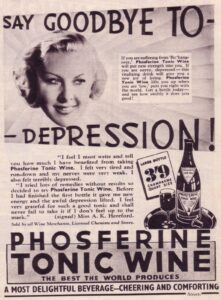NYC Depression Treatment
Updated by Natan Schleider, M.D. on January 10th, 2021

NYC Depression Treatment occurs from our Manhattan Office or via Telemedicine.
NYC depression treatment by our psychiatrists follow DSM V (Diagnostic Statistical Manual).
Some important points about treatment of depression in New York City patient:
- Depression is an ‘umbrella term.’ There are many sypes of depression:
- One type is Persistent depressive disorder (also called dysthymia)is a depressed mood that lasts for at least two years. A person diagnosed with persistent depressive disorder may have episodes of major depression along with periods of less severe symptoms, but symptoms must last for two years to be considered persistent depressive disorder.
- Another type is Postpartum depression is much more serious than the “baby blues” (relatively mild depressive and anxiety symptoms that typically clear within two weeks after delivery) that many women experience after giving birth. Women with postpartum depression experience full-blown major depression during pregnancy or after delivery (postpartum depression). The feelings of extreme sadness, anxiety, and exhaustion that accompany postpartum depression may make it difficult for these new mothers to complete daily care activities for themselves and/or for their babies.
- Third is, Psychotic depression occurs when a person has severe depression plus some form of psychosis, such as having disturbing false fixed beliefs (delusions) or hearing or seeing upsetting things that others cannot hear or see (hallucinations). The psychotic symptoms typically have a depressive “theme,” such as delusions of guilt, poverty, or illness.
- The last type is Seasonal affective disorder. Common during the winter months, when there is less natural sunlight, depression often lifts during spring and summer. Winter depression, typically accompanied by social withdrawal, increased sleep, and weight gain, predictably returns every year in seasonal affective disorder
Bipolar disorder is different from depression, but it is included in this list is because someone with bipolar disorder experiences episodes of extremely low moods that meet the criteria for major depression (called “bipolar depression”). But a person with bipolar disorder also experiences extreme high – euphoric or irritable – moods called “mania” or a less severe form called “hypomania.”
Examples of other types of depressive disorders newly added to the diagnostic classification of DSM-V include disruptive mood dysregulation disorder (diagnosed in children and adolescents) and premenstrual dysphoric disorder (PMDD).:
Before depression treatment can begin for New Yorkers suffering the blues, our psychiatric physicians–New Yorkers themselves–look for the following:
- Persistent sad, anxious, or “empty” mood
- Feelings of hopelessness, or pessimism
- Irritability
- Feelings of guilt, worthlessness, or helplessness
- Loss of interest or pleasure in hobbies and activities
- Decreased energy or fatigue
- Moving or talking more slowly
- Feeling restless or having trouble sitting still
- Difficulty concentrating, remembering, or making decisions
- Difficulty sleeping, early-morning awakening, or oversleeping
- Appetite and/or weight changes
- Thoughts of death or suicide, or suicide attempts
- Aches or pains, headaches, cramps, or digestive problems without a clear physical cause and/or that do not ease even with treatment
Treatment and Therapies of Depression in NYC patients
Our NYC psychiatrists prefer NOT to medicate unnecessarily. Ideally talk therapy, exercise, and herbal medicines like St. John’s Wort could be tried before starting an antidepressant medicine.
That said, depression is ideally treated with a combination of medications and psychotherapy.
Note: No two people are affected the same way by depression and there is no “one-size-fits-all” for treatment. It may take some trial and error to find the treatment that works best for you. There are some blood tests that help DOCTOR IN THE FAMILY Psychiatrists chose a medicine but these are not precise and not usually covered by insurance.
Medications
Antidepressants are medicines that treat depression. They may help improve the way your brain uses certain chemicals that control mood or stress. You may need to try several different antidepressant medicines before finding the one that improves your symptoms and has manageable side effects. A medication that has helped you or a close family member in the past will often be considered.
Antidepressants take time – usually 2 to 4 weeks – to work, and often, symptoms such as sleep, appetite, and concentration problems improve before mood lifts, so it is important to give medication a chance before reaching a conclusion about its effectiveness.
Please Note: In some cases, children, teenagers, and young adults under 25 may experience an increase in suicidal thoughts or behavior when taking antidepressants, especially in the first few weeks after starting or when the dose is changed. This warning from the U.S. Food and Drug Administration (FDA) also says that patients of all ages taking antidepressants should be watched closely, especially during the first few weeks of treatment.
Some final tips on managing depression:
Here are other tips that may help you or a loved one during treatment for depression:
- Try to be active and exercise.
- Set realistic goals for yourself.
- Try to spend time with other people and confide in a trusted friend or relative.
- Try not to isolate yourself, and let others help you.
- Expect your mood to improve gradually, not immediately.
- Postpone important decisions, such as getting married or divorced, or changing jobs until you feel better. Discuss decisions with others who know you well and have a more objective view of your situation.
- Continue to educate yourself about depression.
Please contact DOCTOR IN THE FAMILY psychiatrists in NYC if you are seeking diagnosis, second opinion, and/or treatment options for PTSD by calling or texting 646-957-5444.

